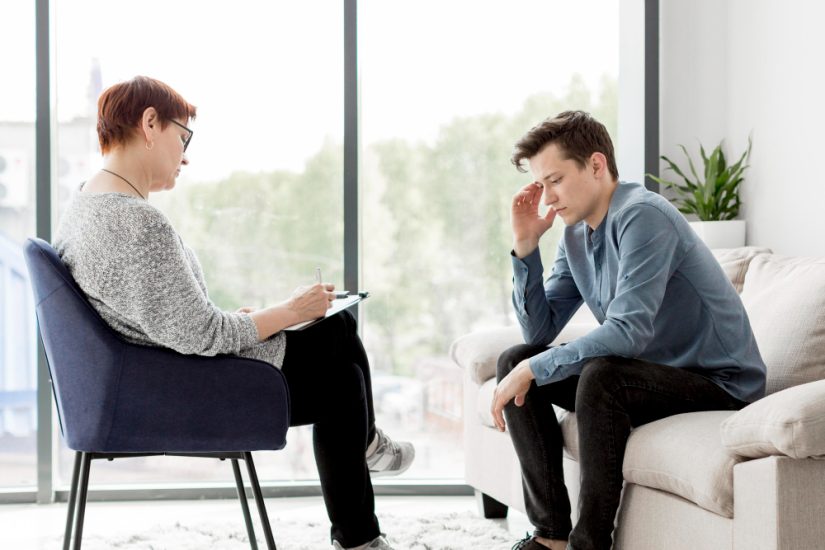- December 18, 2024
- by Harshita Bajaj
- Alone time, Mental Health
Table of Contents
In the modern world, where one’s availability is ever present, alone time or me time is a luxury. Taking out time for yourself is often overshadowed by personal or family responsibilities, work demands and social obligations. In spite of the demands, it is important to reserve alone time as it offers many emotional and psychological benefits.
“Alone time is when I distance myself from the voices of the world so I can hear my own.” – Oprah Winfrey
The Importance of Alone Time for Mental Health
Alone time or me time for mental health is an opportunity to be away from external distractions and reconnect with your inner self. It gives you time for self-reflection so you can gain insights, know yourself better and connect with self, set goals and process emotions. Studies show that spending time alone enhances problem-solving and improves emotional resilience. Alone time can also help with stress reduction as it gives you time to decompress after work or socialization. Being by yourself gives your mind time to wander and be creative, alone time or solitude can foster creativity and productivity.
Is Being Alone Good for your Mental Health?
Let us look at the benefits and risks of me time in order to understand is alone time good for mental health.
Benefits of Alone Time
- Stress Reduction: Me time allows individuals to recharge, decompress and which fosters relaxation and reduce stress levels.
- Self-Awareness and Emotional Regulation: When you get alone time to reflect upon your thoughts, feelings, behaviors without any external influence, your insight, intuition, decision making and emotional regulation skills improve, helping you achieve a balanced emotional state.
- Creativity: Solitude gives you the space and freedom to create and develop new ideas. Many creative breakthroughs happen in solitude, as is highlighted by Albert Einstein and Virginia Woolf.
- Sleep Quality: Alone time can improve sleep quality as it helps individuals unwind, become comfortable with their thoughts, promote a relaxed state with balanced emotions, which are required for transitioning from rest to restful sleep.
Risks of Too Much Time Alone
- Mental health risks: Too much time alone can often lead to isolation from other people and eventually it may lead to feelings of loneliness, depression, negative thoughts and anxiety.
- Physical health risks: Social isolation leads to higher risk of heart disease and a weak immune system.
How Does Being Alone affect Mental Health?
Being alone can have both positive and negative effects on mental health of an individual, however the impact depends on personality and how the alone time is spent. When it comes to the basic personality factor of Introversion vs extroversion, Introverts thrive in solitude, where alone time or me time is necessary for them to recharge by being in their own company. On the other hand, Extroverts might find alone prolonged alone time draining or distressing.
Alone time is the best time for mental health when it’s intentional and turns out to be purposeful or meaningful; it is healthy when it is not forced or prolonged. Hence, it is important to find the right balance for optimal well-being.
Alone Time is the Best Time: Finding the Right Balance for Better Mental Health
Finding the right balance between me time and social interaction or engagement is essential to maintain mental well-being. When you alternate between the two, the social interactions are more meaningful, and me time is also a nourishing time. It helps you connect with self and others on a deeper level.
Additionally, the alone time should have an intention set behind it. For instance, you are utilizing the time to rest and rejuvenate, engage in activities or hobbies you enjoy, journal, meditate for relaxation and self-care.
Negative thoughts, sadness, hopelessness, social withdrawal are observed as signs that alone time is exceeding the healthy limit, and solitude is turning into loneliness. These are red flags or warning signs to watch out for so that alone time can be utilized for enhancing mental health and excessive alone time can be limited.
Find the right balance that works for you and incorporate some alone time that allows you to rejuvenate yourself in your schedule, however, do not let it exceed to the limit that you are disconnected for other individuals and the world around you.
To conclude, alone time can be beneficial for mental health when it is intentional and approached in a balanced manner. It can foster self-awareness and insight, emotional regulation, improve sleep and reduce stress. However, too much alone time can lead to loneliness, anxiety and negative thoughts. Hence, it is important to find the right balance between alone time and socialization. In case you or someone you know is struggling with isolation, negative thoughts, remember you are not alone, and can find appropriate mental health support by searching for therapists near me to help you understand the issue you are facing and find the right balance for you. Lastly, recognizing the benefits of alone time is important so you can utilize it to improve your mental health, physical health and emotional well-being.
With North America Behavioral Health Services, you can avail the best facilities for your mental health care today!
Feeling alone and need
someone to talk to?
















